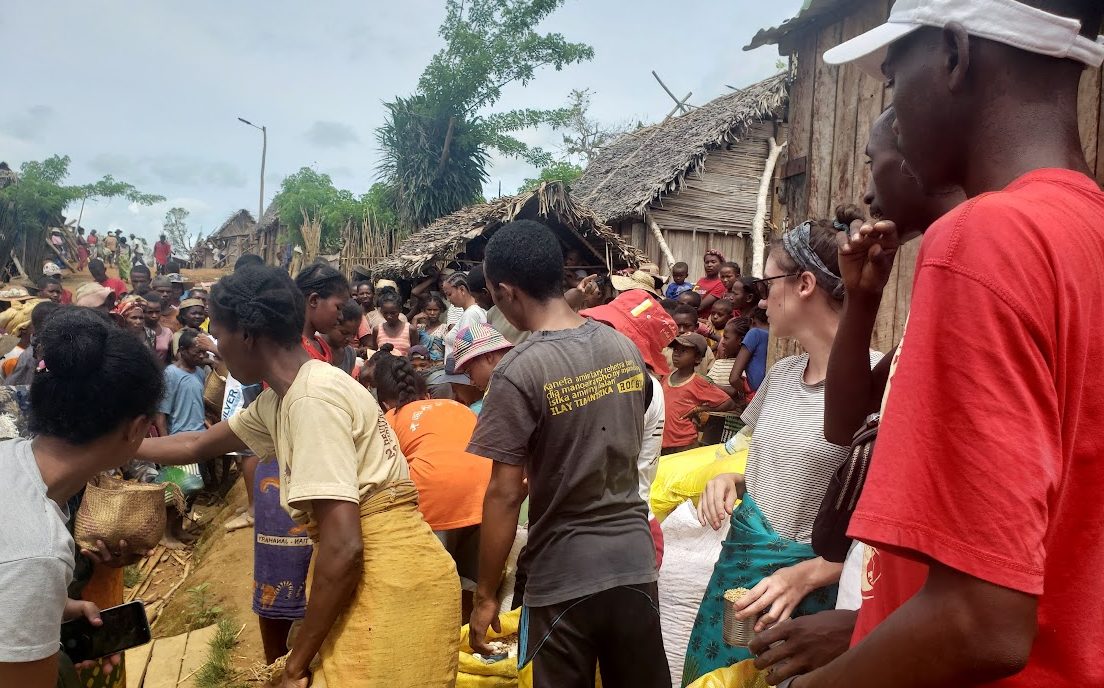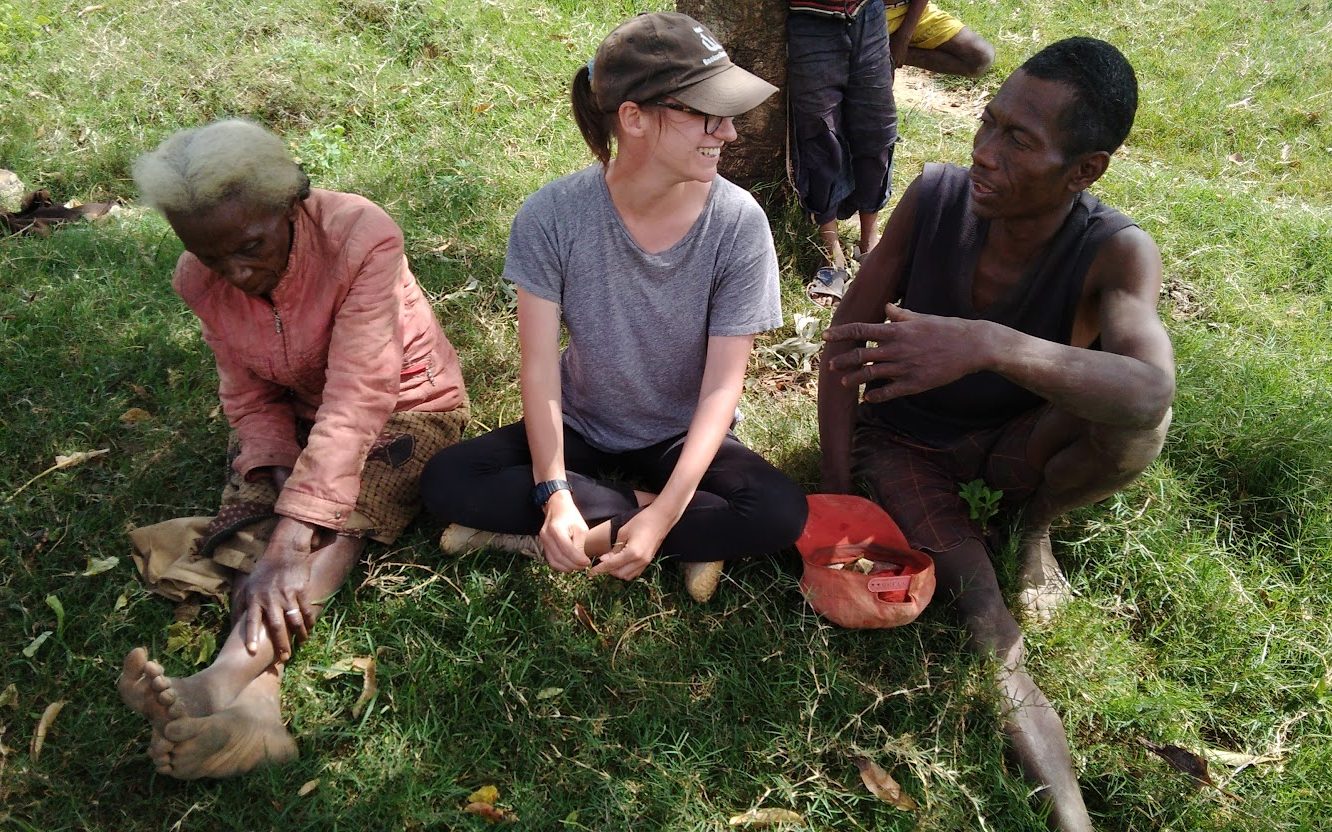Disertation: Antimalarial Afterlives: Medicine for a Planetary Age from Madagascar
Advisor: Christine Walley
Degree Awarded: 2023
Current Affiliation: Johns Hopkins University
Gabrielle Robbins
2017 cohort
BA, Anthropology, Barnard College
Gabrielle Robbins first visited Madagascar in 2014 as part of a project focused on the manufacturing of anti-malarial medicine. There, she learned that the farmers who grew artemisia plants used in anti-malarial medicines often couldn’t afford to buy the finished drugs for themselves—a cruel but not uncommon effect of unequal global supply chains. “I became obsessed with the idea that people who cultivate the plants that massive companies depend on can’t access the products themselves,” Gabrielle explains.
At HASTS, Gabrielle is engaged in long-term ethnographic fieldwork that focuses on understanding the environmental, social, and geopolitical impact of drug industries in Madagascar. Growing artemisia for anti-malarials was seen as a national development strategy for Madagascar—but the island is now also trying to expand domestic drug production to ensure medicines for Malagasy consumers. Gabrielle works closely with Malagasy communities that produce these natural resources to understand how national and global biotechnological industries affect local life.
“Drug-making depends on the cultivation of medicinal plants; cultivating medicinal plants, in turn, depends on people and land who are dedicated to the endeavor,” she says. “However, in the absence of pharmaceutical industries, Malagasy villagers would otherwise use this land to grow food. If they can’t grow as much food because the fields are dedicated to medicinal crops, they need to buy it instead. The economic environment is entirely transformed by the introduction of medicinal cash crops.”
Anti-malarial medicine is of particular interest because increasing global temperatures are causing a related increase in the disease. In this way, Gabrielle’s work straddles the interrelated challenges of climate change, global inequality, and sustainable development. Gabrielle chose to pursue this research at HASTS because of the strength of the program’s interdisciplinary focus—this was a place where she could live in the intersection and deploy the tools of several areas of study.
“If I’m thinking ambitiously, I hope my research can help illuminate a way forward to create more sustainable, equitable, and climate-resilient drug industries,” she says. These questions are close to her heart because she grew up in Indianapolis—a city that was substantively transformed by the economic contributions of Eli Lilly and Company, a major pharmaceutical company that commercialized cancer drugs synthesized from Malagasy plants. “Ultimately the question is how we can create more ethical drug companies—and how we can ensure the stability of these systems in the face of challenges like climate change or an act of God like the pandemic.”
Gabrielle’s research is supported by the National Science Foundation and the Wenner-Gren Foundation for Anthropological Research, as well as MIT’s Center for International Studies, Environmental Solutions Initiative, and MIT-Africa. She is a member of the 2021-2022 cohort in the Martin Family Society of Fellows for Sustainability.



